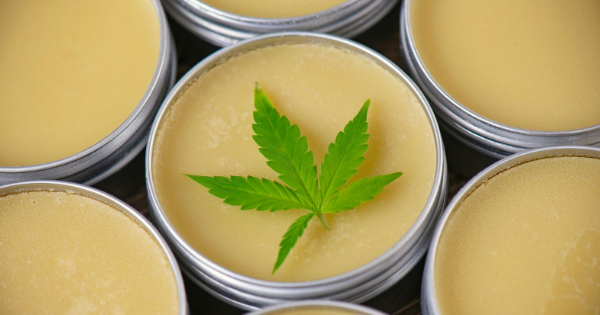CBD isn’t new — in fact, it has been around for millennia, much longer than human civilization. And yet, if you are just hearing about CBD for the first time, you aren’t alone. Though researchers have known about CBD for the better part of a century, we haven’t known much about what it does to the human body, until now. If you want to ask some of the most fundamental questions about CBD, read on for answers to the 5 Ws.
What Is CBD?
CBD stands for cannabidiol, which is a unique compound within cannabis — also known as a cannabinoid. CBD was first discovered in the 1940s, when America had just enacted anti-marijuana laws and many researchers were struggling to understand what compounds in cannabis causes users to get high. CBD does not have any psychoactive effects, but it does encourage the body to produce certain neurotransmitters, which result in muscle relaxation and pain relief among other effects. In contrast, THC does have psychoactive effects — and you can read more about the differences between THC and CBD here: https://weedmaps.com/learn/cbd/thc-vs-cbd
Why Do People Use CBD?
CBD doesn’t get you high, but that doesn’t make it useless. In fact, its effects on the body are incredibly powerful and are already widely used to manage various health conditions, from epilepsy to arthritis to multiple sclerosis, PTSD and more. CBD is safe; it is impossible to overdose on the substance and there are few, incredibly minor side effects that a small portion of users experience. As a result, CBD is an almost ideal treatment, especially considering that it can replace pharmaceuticals that carry much more risk.
Who Needs CBD?
People experiencing extreme health conditions should talk to their doctors about the possibility of using CBD as treatment. However, in most places, CBD is legal to everyone over the age of 18, which means that you can experiment with CBD if you believe you might benefit from it. Still, it is a good idea to talk to your doctor to ensure that any medications you are taking will not be affected by CBD.
Where Is CBD Legal?
Because CBD does not produce psychoactive effects, it is not regulated like marijuana. In fact, in 2018, U.S. Congress passed the Farm Bill, which allows farmers to cultivate low-THC cannabis for the production of CBD. Even so, states have developed their own CBD regulations. As of this writing, Idaho, Iowa and South Dakota ban CBD in every form; most states do not allow CBD to be sold in food or beverages; some states have limitations on where CBD can be farmed and manufactured. However, because CBD doesn’t produce any visible effects, it is unlikely that you will get in trouble for using CBD. You can read more about the Farm Bill and the legal status of CBD here: https://www.brookings.edu/blog/fixgov/2018/12/14/the-farm-bill-hemp-and-cbd-explainer/

When Should One Use CBD?
CBD has many benefits, but that doesn’t mean you should take CBD without a reason. Though more and more research confirms that CBD is safe and effective, we aren’t yet sure of its long-term effects. Thus, you should only use CBD if you are suffering from a health condition that CBD can treat, like muscle tension and spasms, chronic pain or clinical anxiety. It might be useful to read about the latest research on CBD, which you can do here: https://www.health.harvard.edu/blog/cannabidiol-cbd-what-we-know-and-what-we-dont-2018082414476
How Does Someone Take CBD?
CBD comes in many forms, from raw cannabis to oils to edibles and more. Here’s a quick guide to the most common CBD forms:
- CBD oil. Oil is one of the most convenient forms of CBD. You can drop oil beneath your tongue or mix it into food and drink. You can buy different dosages or CBD oil and control how many drops you receive.
- CBD edibles. Chocolates, gummies, cookies and many other foods are available with CBD cooked into them. You can also buy CBD capsules which function like edibles. Eating CBD isn’t ideal because you have less control over your dosage, but it can be fun to experiment with CBD edibles.
- CBD topicals. Topicals like lotions, balms and salves, do not give you all-over effects of CBD but instead target certain areas of your body where you apply them. This can be beneficial for treating specific areas of pain and tension.
- Cannabis flower. Though there are high-CBD strains of marijuana, flower will always impart some THC and other compounds in addition to CBD. Smoking or vaping flower can be useful, but it will provide a high and cause you to fail cannabis drug tests.
You aren’t alone in your budding interest in CBD. You should take the time to talk to your doctor about CBD as a treatment for any health conditions currently afflicting you, and you should talk to experts at your local dispensary to learn more about which CBD products could fit your lifestyle.
 Kaboutjie SA Mommy Blogs by Lynne Huysamen
Kaboutjie SA Mommy Blogs by Lynne Huysamen




